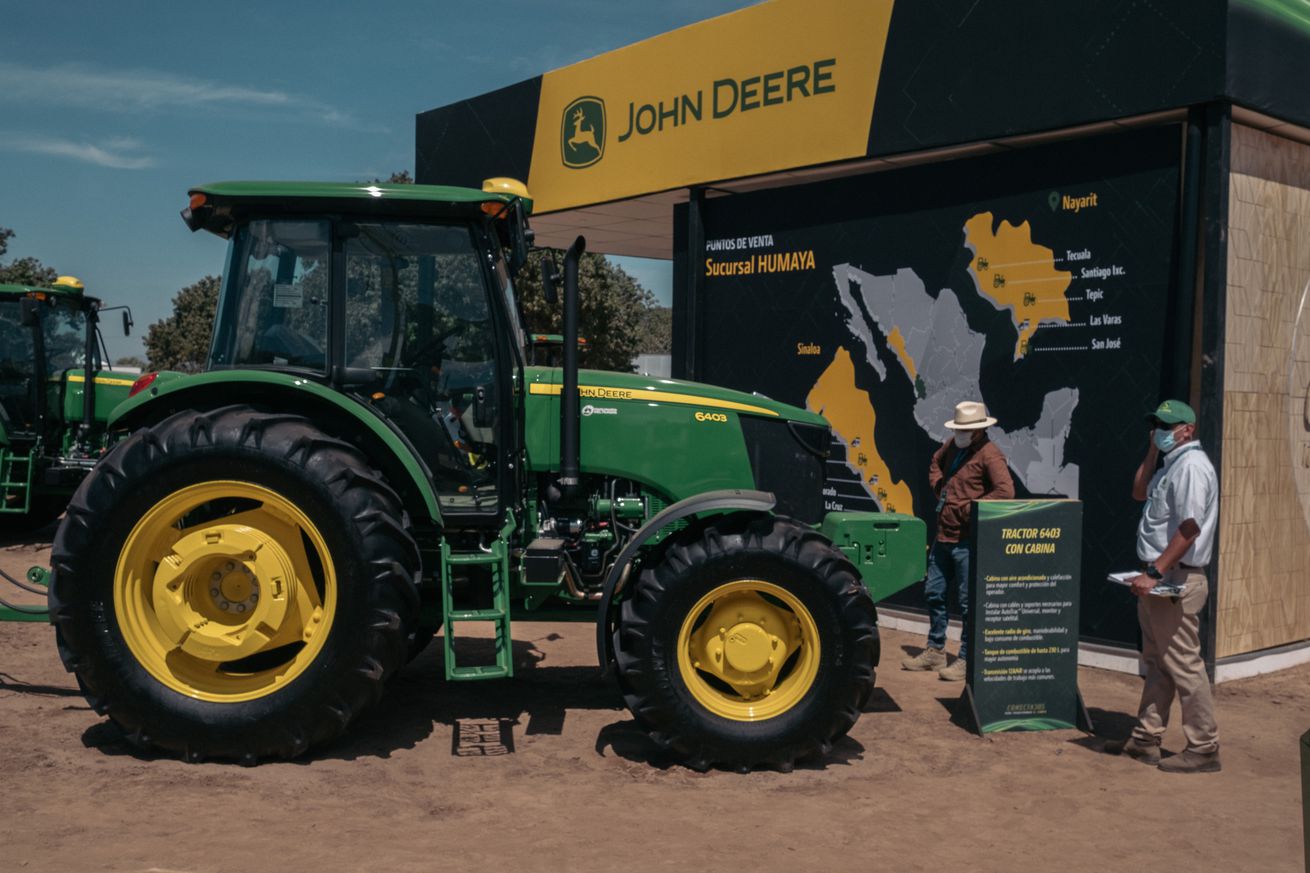
John Deere commits to letting farmers repair their own tractors (kind of)
John Deere has finally committed to giving farmers the tools they need to fix their own equipment. The company signed a memorandum of understanding with the agricultural lobbying group, American Farm Bureau Federation (AFBF), on Sunday, an agreement that’s also supposed to ensure that farmers can take their machines to third-party repair shops, as reported earlier by The Wall Street Journal.
For years, John Deere has been at the center of the right-to-repair debate, and not in a good way. The company put software locks on equipment that only authorized dealers can disable, preventing farmers or an independent repair shop from diagnosing and fixing a machine. It can also remotely shut down machines at any time (like it demonstrated when Russians stole Ukrainian farm equipment last year). These limitations have led some fed-up farmers to hack their tractors, something this new agreement is supposed to remedy.
The memorandum of understanding ensures that John Deere makes its software, tools, and documentation available to both farmers and independent repair shops. It also notes that owners and third-party technicians can’t compromise a machine’s safety features through modifications and assures that John Deere’s copyrighted software “is fully protected from illegal infringement,” likely through modifications made by hacking.
Although this seems like a step in the right direction, it’s written in a way that could allow John Deere to skirt federal or state right-to-repair legislation. In the agreement, the AFBF says it will encourage “state Farm Bureau organizations to recognize” these commitments and “refrain from introducing, promoting, or supporting federal or state ‘Right to Repair’ legislation.” If any right-to-repair legislation passes, the AFBF and John Deere can withdraw from the agreement. In other words, it looks like John Deere wants to partake in right-to-repair on its own terms — not through legislation that could potentially cement and expand repair rights for consumers.
John Deere has been slowly loosening restrictions on the repairability of its equipment in response to widespread criticism of its policies and promised to expand the availability of its diagnostic tools in 2023. In a 2021 Decoder interview, John Deere CTO Jahmy Hindman argued that the company’s “committed to enabling customers to repair the products that they buy” and that customers can repair most of the issues on a piece of John Deere equipment:
There’s nothing that prohibits them from doing them. Their wrenches are the same size as our wrenches. That all works. If somebody wants to go repair a diesel engine in a tractor, they can tear it down and fix it. We make the service manuals available. We make the parts available, we make the how-to available for them to tear it down to the ground and build it back up again.
As part of the agreement, John Deere and the AFBF will meet “at least semi-annually” to evaluate how the equipment-maker’s addressing operational concerns and suggest updates to the memorandum of understanding, as well as discuss anything related to the right-to-repair movement, which has started to heat up across the US.
Late last year, New York became the first state to enact the Digital Fair Repair Act, a law that gives consumers and independent technicians the right to get the manuals, diagrams, diagnostics, and parts they need from original equipment manufacturers to repair devices themselves. However, a controversial adjustment severely limits the bill, allowing OEMs to sell sets of parts instead of individual pieces. It also won’t force them to provide the necessary information to bypass software locks.
“Machinery and equipment and the products that our customers invest in are a large investment,” David Gilmore, John Deere’s senior vice president of sales and marketing, says in a statement. “And the opportunity for them to maximize the uptime of that equipment and minimize downtime is an important area of focus for our organization and for the industry.”
We’ll have to wait and see if John Deere actually holds up its end of the agreement (something it hasn’t been particularly good at) or if the agreement will even last amidst a push for right-to-repair laws.

